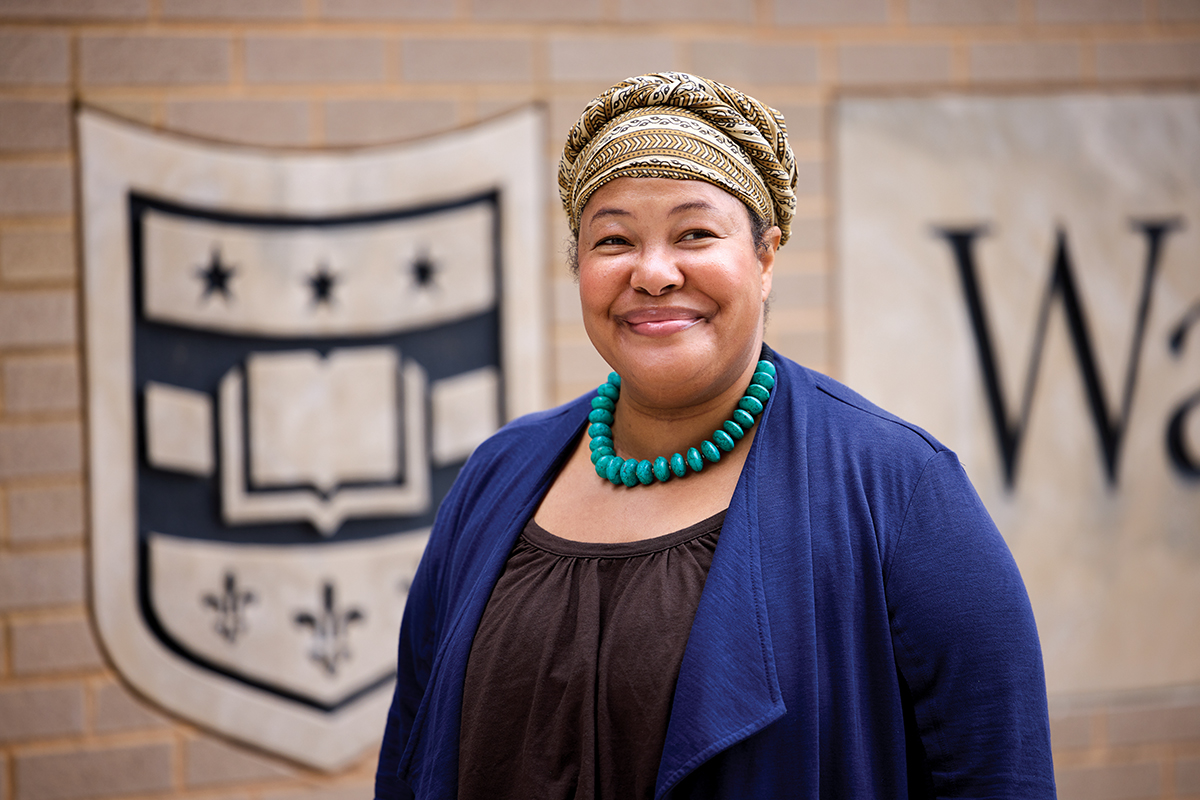
When Ericka V. Hayes, MD ’98, came to Washington University as an undergraduate, she felt as though she had finally found a community of like-minded people. That sense of belonging continued when she entered Washington University School of Medicine, where a close-knit cohort of classmates and outstanding mentorship from attendings and residents were catalysts for her success.
It was people — stellar clinicians and researchers Hayes knew from her medical school days — that brought her back to WashU. She returned for a fellowship in pediatric infectious diseases after she completed a pediatrics residency at the University of California, San Francisco. She subsequently joined the faculty in 2006 and became an associate professor of pediatrics and medical director of infection prevention and of the pediatric HIV program at St. Louis Children’s Hospital.
Though Hayes recently moved on to a position as professor of clinical pediatrics at the University of Pennsylvania and senior medical director of infection prevention and control at Children’s Hospital of Philadelphia, she remains tethered to her alma mater through her leadership of the Washington University Medical Center Alumni Association (WUMCAA). She began a one-year term as president of the organization’s executive council in July, when she took the reins from previous president Susan H. Yang, MD ’97, HS ’01. In this role, Hayes focuses on fostering connections among former students, residents and fellows. The position is a perfect fit for an alumna who deeply values the relationships she cultivated at the medical center over the years.
Q&A
Why did you choose Washington University for medical school?
As an undergraduate at WashU planning to pursue a career in medicine, it’s hard to escape the pull of the School of Medicine. Also, I had some research experiences at the medical school when I was an undergraduate. And to be completely honest, I received a scholarship offer. Otherwise I would not have been able to come to such a great school.
How would you describe your experience at the medical school?
The class size at the medical school is relatively small, and our entire group bonded very well. When you have supportive people around you, you really feel you can succeed. I made lifelong friends.
“When you have supportive people around you, you really feel you can succeed. I made lifelong friends.”
— Ericka V. Hayes, MD ’98
Anatomy lab in my first year was a game changer for me. As an undergrad chemical engineering major, I didn’t have much experience with dissection. Anatomy lab was so visceral and real. It was like, “You are now in medical school, and you have great responsibility.”
The preclinical courses were very strong, which, in fact, inspired me to go back and serve as co-director of the preclinical pediatrics course for 13 years after I became a faculty member. And the clinical rotations were incredible because of the one-on-one interaction with attendings and residents.
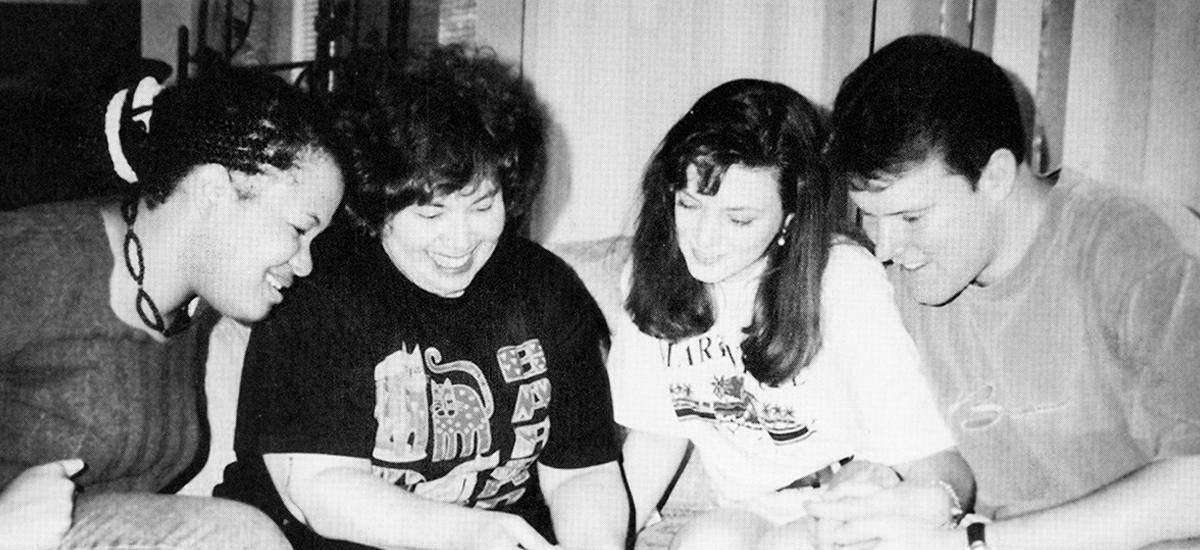
As far as specific experiences, there was the baby I delivered in the emergency room. And my rotation in the NICU was exciting. I had never touched an infant that small before. Sesh Cole (MD, executive vice chairman of pediatrics) was my attending. He was such a great clinician-scientist model for me.
Are there other faculty members who inspired you when you were a student?
Arnie Strauss (MD ’70, former director of pediatric cardiology) was my attending during a third-year pediatrics rotation. He was such an incredible teacher, and he connected so well with students. He made us want to learn, to stay up all night reading articles so we might impress him the next day.
As a fourth-year medical student, I had a lot of interactions with the late Jim Keating (HS ’69, former director of pediatric gastroenterology and of the pediatric residency program). What I loved about Dr. Keating was that he expected you to know your stuff, but he also wanted you to know the limits of your knowledge and admit those limits. He was tough, but I never had a problem with him. If I couldn’t answer one of his questions, I would say, “I don’t know, but I’m going to look it up.” In medicine, that’s an incredibly important lesson to learn.
Another person who had a big impact on me was David Haslam (HS ’94, former associate professor of pediatrics and of molecular biology). He was the attending for my pediatric infectious diseases elective. David gave us a lot of autonomy but also was the kind of reassuring presence you wanted with you on the wards. He helped solidify my interest in the field. Every single case fascinated me. I will never forget my first Kawasaki disease patient. When we gave him intravenous gamma globulin, it was like we snapped our fingers and he was a healthy boy again.
Why did you choose a career in academic medicine?
Academic medicine was the first model I experienced as a medical student. Academic physicians were our teachers, and that was inspiring. When I went into my residency, I considered focusing on clinical pediatrics. But I ultimately chose the academic path because I wanted to be involved in teaching and efforts to improve community health.
Also, for a person like me with a short attention span, academic medicine allows you to do it all. I’ve done medical education, infection prevention, clinical care and public health. There’s never a dull moment.
What led you to accept your new position in Philadelphia?
Like a lot of people, I started reflecting on where I was in my life and career after COVID-19 struck. I needed a new challenge. When the opportunity at Children’s Hospital of Philadelphia came up, I thought it would be a great chance for me to grow and serve. The hospital has a well-established quality and patient safety program, and I work closely with that group on things like bioresponse to viral surges. I’m excited about that as well as teaching residents and fellows and having mentorship opportunities.
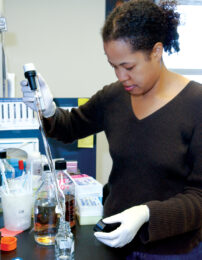
What do you miss most about WashU after serving on the faculty for more than 15 years?
The people and the relationships. I really could not have asked for a better group to be part of as a trainee, young faculty member and midcareer faculty member than the pediatric infectious diseases division. Every member of the team is remarkable. They are smart and driven but at the same time generous and caring. I wanted to be around them all the time, even when I was not at work.
Why did you agree to join the alumni association executive council and serve as its president?
David Hunstad (MD ’95), who directs the pediatric infectious diseases division at Washington University, was president several years ago, and he came to me with the opportunity. As I reflected back on everything Washington University has given me, I wanted to give something back. I believe it’s incredibly important for alumni to stay connected to the medical center. Sometimes in our busy lives, we don’t have time to think about where we came from and remember there are people coming after us who need help and support. This job is a way for me to help alumni reconnect to that and to each other.
Do you have any goals as president?
My biggest goal is to strengthen communication with alumni about the great things going on at the Medical Campus. Alumni are the medical center’s representatives in the world. When people ask them about WashU, we want them to speak about their experiences, but we also want them to talk about the world-class teaching, research and clinical care that takes place here. That helps with student and faculty recruitment and builds our community. We also are looking at ways to increase interaction between current students and alumni. That’s a big priority for us.
What have you enjoyed most about your time on the executive council?
I love hearing from the medical students about their extracurricular activities as part of the council’s work to award funding to student groups. They are doing such great things, from teaching about sexually transmitted infection prevention in local schools to producing the annual student musical. I’m also looking forward to the medical school’s Celebration Weekend April 21-22. I’ll be welcoming back the reunion classes, including my 25th reunion class.
Is there anything else you want alumni to know about the WUMCAA?
The members of the executive council represent all alumni and former house staff, and we want their input. It’s really important to make sure we are hearing all voices. Alumni can reach out to us if they have feedback or thoughts about events or engagement opportunities. We want to make sure we are bringing everyone into the circle.
Philanthropy in action
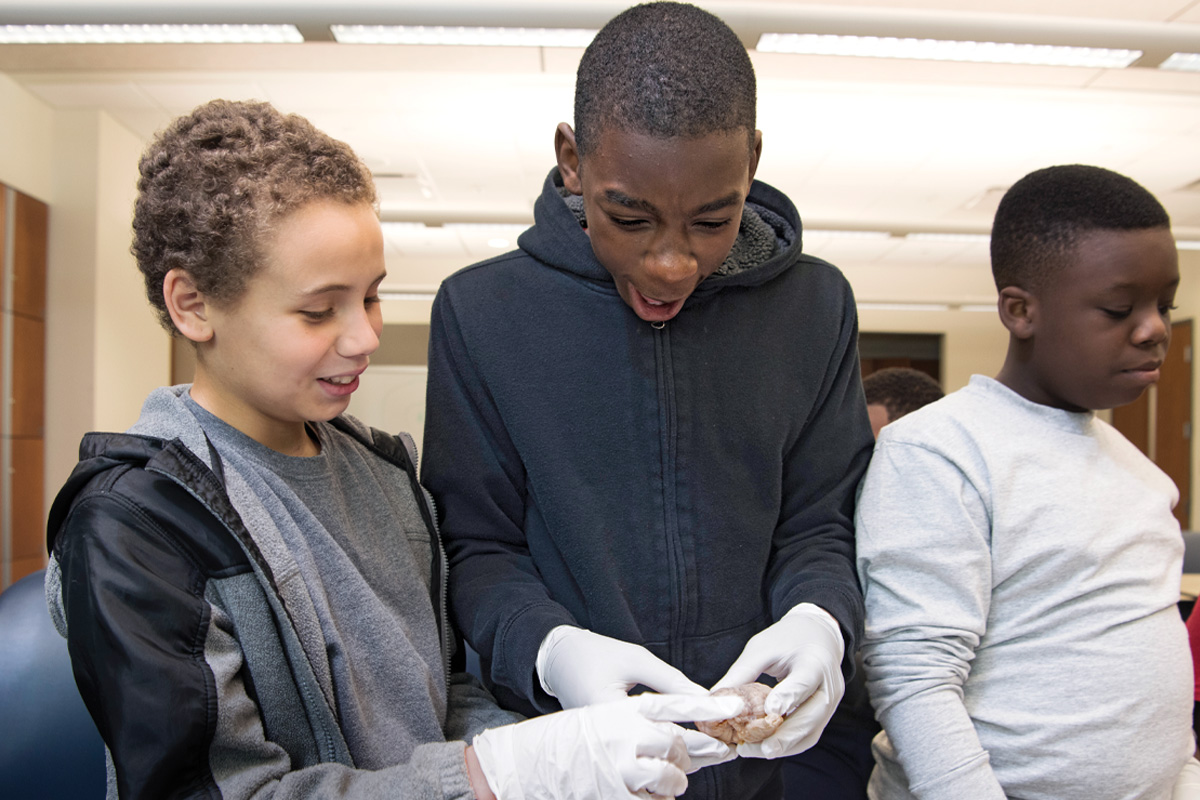
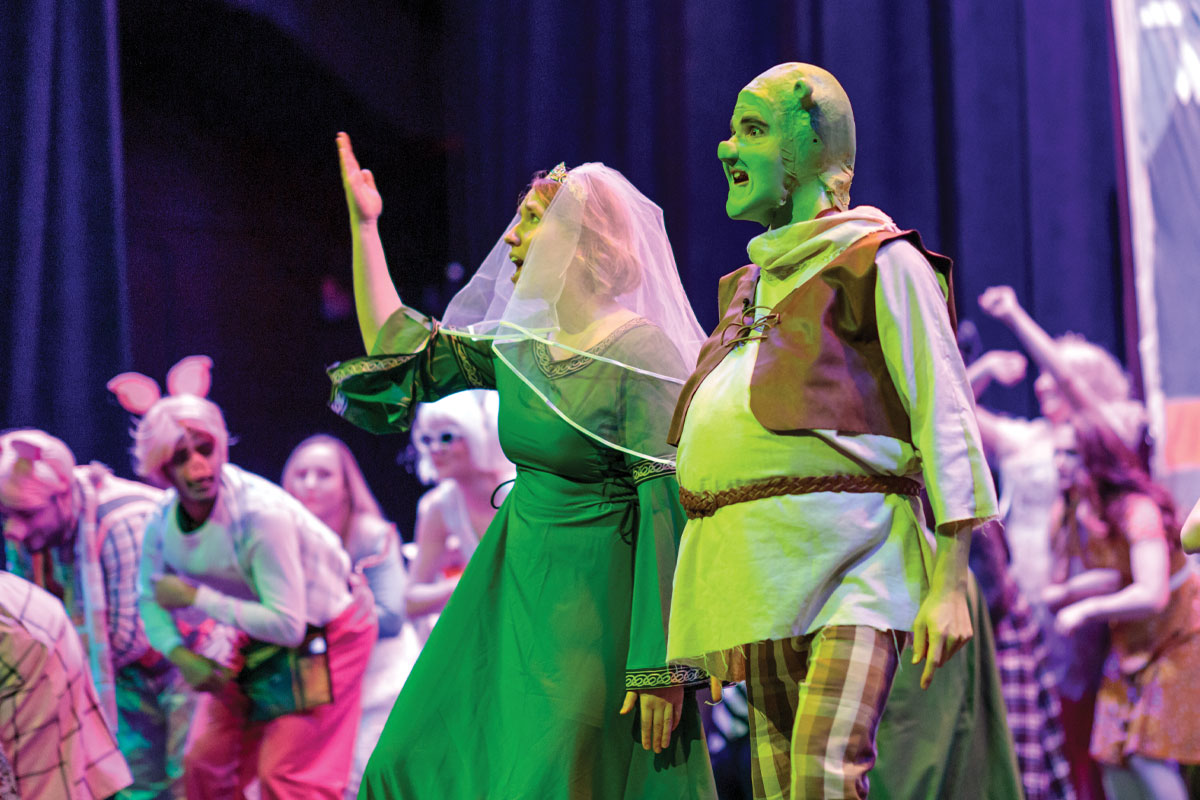
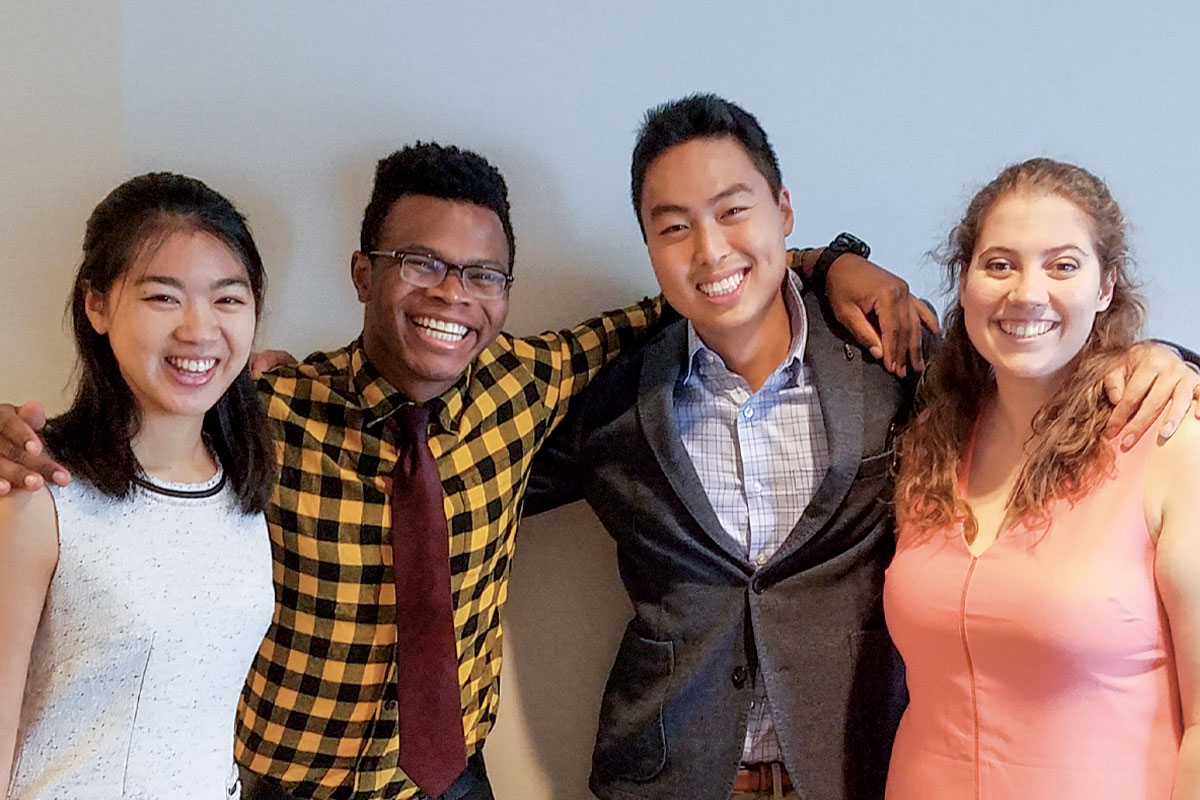
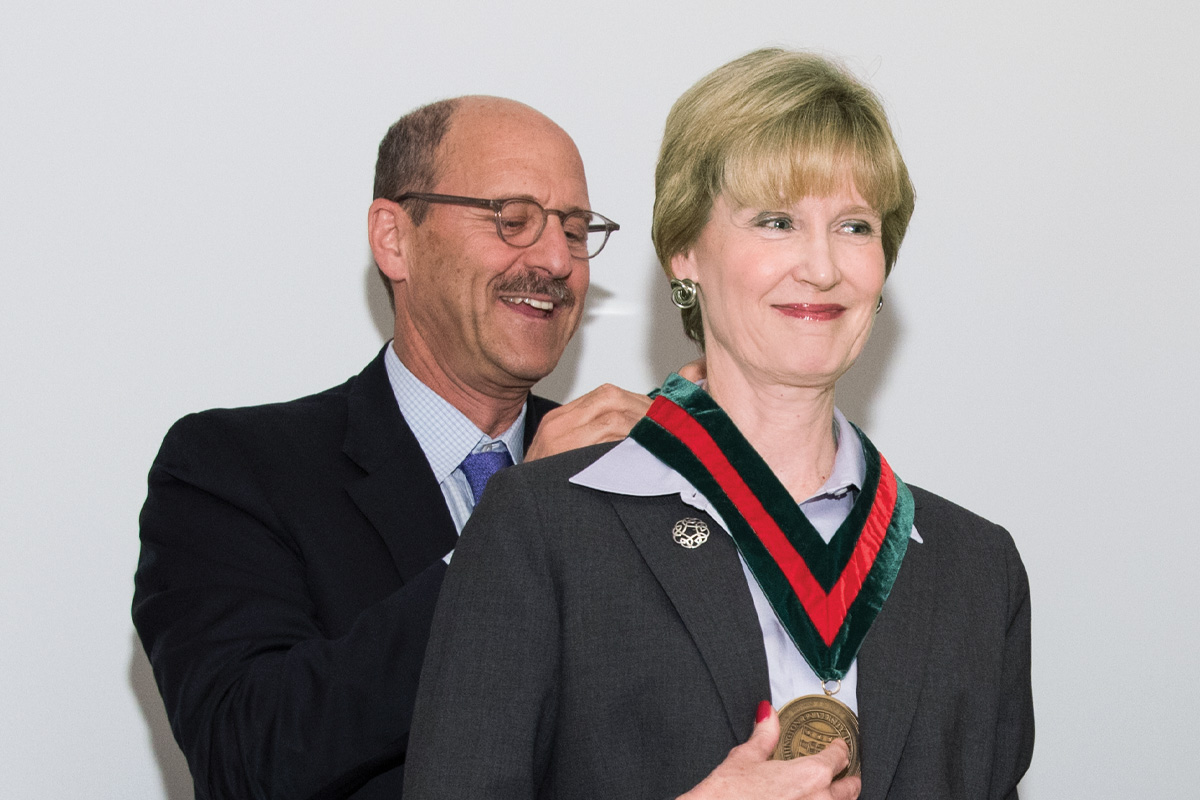
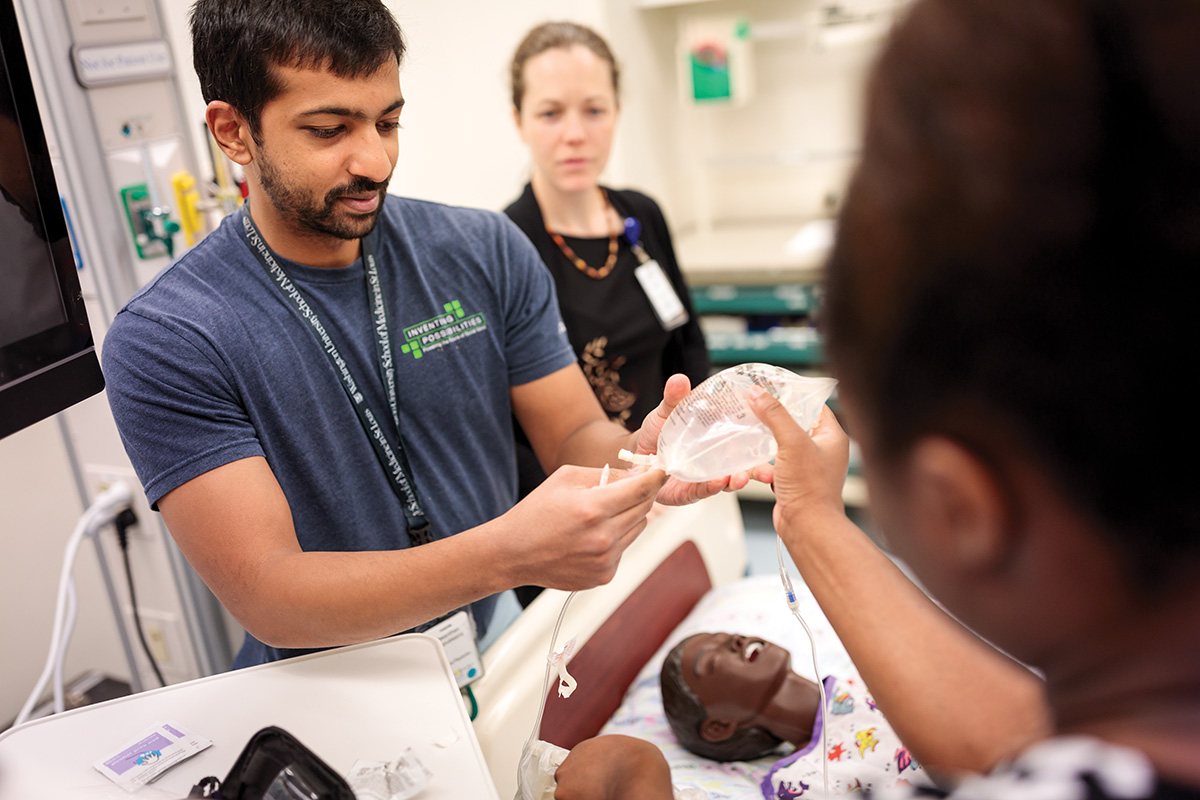
Alumni association philanthropy impact
$243,411 for student groups
15 organizations funded since 2018
$160,000 in scholarships
supported medical students in 2022
12 professorships
endowed since 1982
Plus, alumni and former house staff donations via the Annual Fund help meet other ongoing school priorities.
Stay connected to the school and to each other
Membership in the Washington University Medical Center Alumni Association (WUMCAA) is granted automatically to all alumni of the School of Medicine and former medical center house staff. Goals include:
- Forging connections among alumni.
- Recognizing alumni achievements.
- Furthering the standing of the medical center.
WUMCAA’s Executive Council of 25 alumni volunteers convenes three times a year. Duties include:
- Allocating funds contributed by alumni and former house staff that are not designated for a specific purpose. These funds support important medical school priorities.
- Selecting recipients of the medical school’s annual Alumni Achievement Awards.
- Naming alumni-supported scholarships in honor of outstanding alumni who have served on the medical school faculty.
For more information, visit alumni.med.wustl.edu/connect/wumcaa. Contact the WUMCAA at 314-935-9682 or medicalalumni@wustl.edu.
Published in the Winter 2022-23 issue


